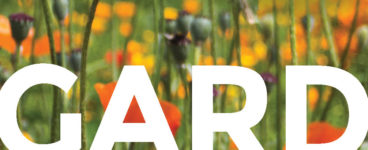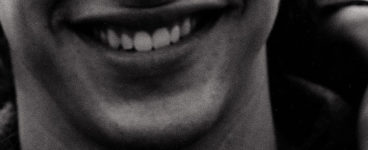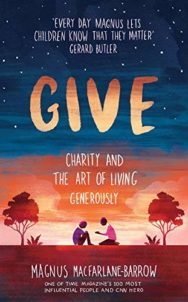‘At times of crisis and disenchantment – and at many other times too, even before we attempt to learn from our mistakes and chart a way forward – we need to remind ourselves why. Why did we set out on this journey? Why should we keep going?’
As the founder and CEO of Mary’s Meals, Magnus helps feed and educate millions of children in 18 different countries across the world every year. In his new book, Give, he explores what charity means, and how it works, for both individuals and organisations.
Extract taken from Give: Charity and the Art if Living Generously
By Magnus MacFarlane-Barrow
Published by William Collins
‘… when all violence subsides in the human heart, the state which remains is love. It is not something we have to acquire; it is always present and needs only to be uncovered. This is our real nature, not merely to love one person here, another there, but to be love itself.’
MAHATMA GANDHI
When we feel bruised and battered by events – like the scandalous things that took place in Haiti or other mistakes of our own making – we need, first of all, to remind ourselves why: why are we doing this? Why is our charity so precious and so needed? We need to convince ourselves once again that the risk is worth taking. Because, make no mistake, every authentic act of charity – whether we make it as individuals or as an organisation – involves an element of risk: the risk of our gift being misused by the homeless person or the charity we donate to; the risk that the project we support does not, in the end, manage to solve the problems it set out to solve; the risk that our charity’s reputation is torn to shreds by the misdemeanours of a member of our staff ; the risk that one day we will not be able to raise the funds required to keep our precious project afloat and end up breaking our promises to vulnerable people. Such risks, along with our own mistakes and the criticisms we receive – both constructive and destructive – will require us to remind ourselves why. At times of crisis and disenchantment – and at many other times too, even before we attempt to learn from our mistakes and chart a way forward – we need to remind ourselves why. Why did we set out on this journey? Why should we keep going? We cannot ask these questions too often in our pursuit of charity.
*
Sometimes, even when we have thought we were leading the way with a new project, we have discovered that spontaneous charity has beaten us to it. And that has been good – a reminder that our role is only to steward that charity in a way that lets it fl ourish and grow and bear all sorts of fruit.
In the late 1990s, towards the end of one of Liberia’s civil wars, we began to accompany some of the Gola people, returning from years of exile in displaced camps, back to their villages in Bomi County. There they discovered that their homes were now overgrown ruins and that there was a new forest growing where their fi elds used to be. We tried to help them in various ways by providing machetes for them to clear the encroaching bush, tools to start rebuilding homes and food supplies until they could start growing and harvesting their own crops once again. In addition, we supported a mobile health clinic which began to serve remote villages with a team of local nurses and cases of medicines. Each Tuesday we visited Massetin, a leper colony where the people had been suffering terribly without any healthcare for many years during the war. Unlike the surrounding villages, Massetin had largely been left alone by the warring soldiers, whose terror of contracting leprosy led to them giving the place a wide berth, and therefore the people here had stayed while other villages emptied.
In Massetin we came to know a young man called Massaquoi and learnt his story. He had had to flee for his life from his own home village during the war. Eventually, as he stole in terror through the thick forest, he came by chance upon Massetin. He decided to stay there and began to tend to the lepers, who were at that time living in desperation. When the war ended he never left, continuing to help them as best he could. He was overjoyed when our clinic began to visit, and in time we provided him with training so that he could become a key member of our team.
We thought our little clinic was a particularly intrepid initiative, helping people in places far beyond the reach of other organised help. But of course, we discovered in Massetin that long before we arrived, charity was already at work and that, in the form of Massaquoi, heroic goodness was alive and well and ready to become part of something more organised. Experiences like that have left me feeling that it is a little odd that an organisation like ours is called ‘a charity’. We are a body established with the purpose of encouraging and making effective the acts of charity performed by individual people. We are not charity itself. Organisations do not perform acts of charity – individual human beings do. It is certainly possible, and expected, that the individuals who comprise an organisation like ours carry out acts of charity, but it is equally possible to work for a charity and not practise it. I can certainly be guilty of that. I do not want to get stuck here on semantics, nor am I proposing a change to a long-established terminology which I use myself, I raise it only because I feel it might correspond to certain wrong attitudes we can adopt when working for a charity. There can be a tendency to think we are ‘in charge’ in the wrong way, or even that we are the prime movers, when – certainly in the case of a grassroots movement like Mary’s Meals – we are the servants of people’s goodness rather than the leaders of it: we are enablers rather than key actors; we are joiners of dots rather than creative geniuses; and we are stewards rather than owners.
Give by Magnus MacFarlane-Barrow is published by William Collins, priced £16.99.
ALSO IN THIS ISSUE

 The Garden Cure
The Garden Cure
‘I have seen over and over how people’s lives can be transformed – put back together and changed for …

 The Book…According to Andrew O’ Hagan
The Book…According to Andrew O’ Hagan
‘I wanted to write a funny, true, and heartbreaking book that showed a friendship in its entirety.’













